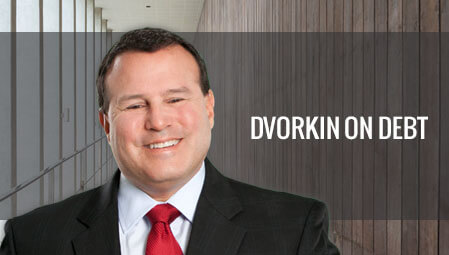The answers might help Americans fight their debt with new weapons.
While science has cured disease and rocketed us to the moon, there’s no shortage of ridiculous research. From actual studies that conclude human beings put on clothes when they’re cold to a bee sting on your private parts hurts more than in other places, science sometimes gets so obvious, it’s pointless.
I mention this because this month I saw a financial study that anyone could have predicted. The prestigious Columbia Business School breathlessly touted its latest with this headline: On Payday, Consumers Feel A License To Spend.
Says the study: “Individuals across the income spectrum spend more on discretionary goods — things like clothes, entertainment, and fast-food meals — on days they get paid.”
You don’t need a business school to tell you that. Go to any high school. Ask what happens when a sophomore or junior gets their first paycheck from their fast-food retail job. The answer won’t be, “I deposit it in an interest-bearing account so I can maximize my long-term savings.”
Even more esoteric is this: “The findings are based on studying five years of purchasing data (2011-2015) from Iceland — where nearly all payments are made electronically.”
Iceland?
While I’m making fun of the details of this particular study, I actually encourage more like it. For too long, financial educators have been preaching the math of saving more and spending less. I’ve done it myself: Create a budget, track your expenses, figure out your interest rates over time.
However, I’ve learned over the past 20 years that really reaching people and changing their financial lives is about psychology as much as cash. So I applaud the effort to ask probing questions about how people think about money, and not just how they spend money.
Questions
However, here are some questions I hope researchers will ask in the future, because the answers might be very enlightening to financial educators like me…
1. How much more likely is it for someone to get serious about their debt if their friends and family are doing the same? We all know that if everyone around you is on a diet or exercising, you’re more likely to join them. I’d love to see some empirical evidence that the same is true with paying down debt.
2. At what age do most people really start worrying about their retirement? Obviously, it’s a tough sell convincing twenty-somethings to save for retirement. When is the optimal age so we can focus our educational efforts?
3. When does your debt finally feel out of control? Of course, this varies by person. I’ve counseled high earners who panic over $5,000 and low-earners who need convincing that $20,000 is a lot to carry on a credit card. However, it would be instructive if researchers dug deep into this question and came up with scenarios that might help folks like me persuade Americans to conquer their debt before it becomes a disaster.
Maybe it’s just me, but these questions also sound like more fun to analyze than paychecks in Iceland.








